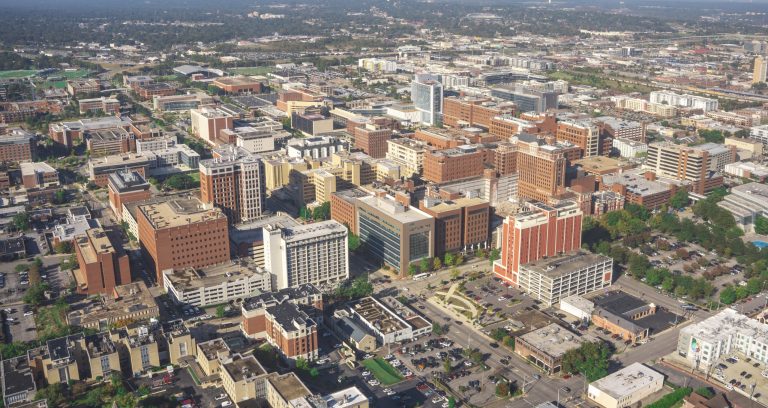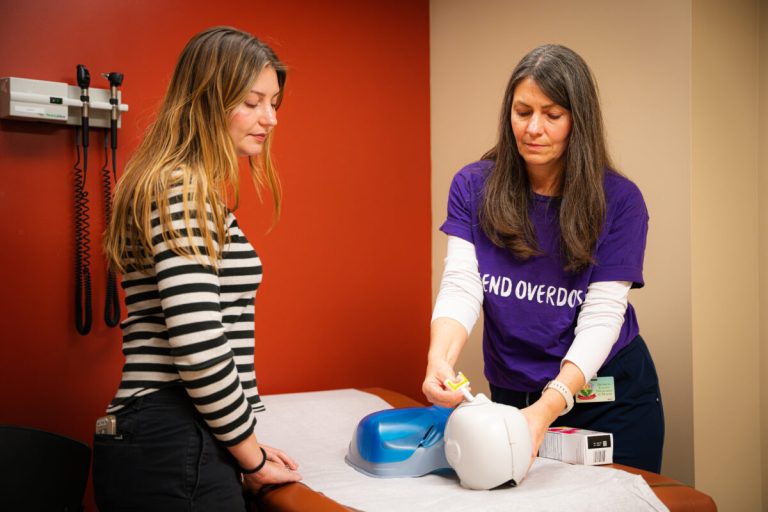Reviewed by: Cindy Hatcher
This Alabama nonprofit just celebrated the largest graduating class in state history
Reading time: 4 minutes
Sponsored

Big things are happening at Cahaba Medical Care, where the residency program is shaping the next generation of community-focused physicians. In June 2025, Cahaba made history by graduating 19 new doctors—the largest family medicine class in Alabama to date. It’s a major milestone in their mission to bring high-quality, compassionate care to underserved communities in Birmingham.
We caught up with Dr. Craig Borne, DO, one of this year’s graduates, to learn about his experience in the program and what he hopes to bring to The Magic City.
Cahaba + UAB Family Medicine Residency is rooted in service + compassion

What sets Cahaba + UAB Family Medicine Residency apart from others? It’s all about the why.
Founded in 2013, the program was created specifically to train physicians to serve underserved communities—rural, urban, and international—while equipping them to care for the whole person. Think community-based, full-spectrum medicine with a heart.
Here’s a quick look at what makes Cahaba unique:
- It was Alabama’s first Teaching Health Center.
- It’s one of Alabama’s Federally Qualified Health Centers (FQHC) that has a Residency Program—meaning residents care for patients regardless of their ability to pay.
- It’s mission-driven, rooted in love, peace and justice and inspired by the compassion of Christ.
Training servant doctors where they’re needed most

Cahaba’s residency program isn’t one-size-fits-all. Its residents train for one of four distinct campuses across Alabama, with each offering its own unique learning opportunities.
Here’s a look at each:
- Rural (Centreville) – Rooted & Equipped: Trains physicians to become pillars in rural communities—delivering babies, caring for the elderly, making home visits and treating the full range of health needs where medical access is scarce but trust is paramount.
- Urban (Birmingham – West End) – Built for the Edges: Prepares doctors to practice whole-person care in underserved urban neighborhoods—managing complex conditions, confronting injustice, and walking alongside patients facing the harshest of inequities.
- Frontier (Marion & Camden) – Ready for the Beyond: Equips physicians for medicine where few others go—serving in Alabama’s Black Belt across isolated, under-resourced communities. With resilience and creativity, they deliver comprehensive care where roads fade and support systems are minimal.
- Highlands (Birmingham) – Grafted & Grounded: Combines the academic strengths of a university setting with the heart of community care—training doctors in digital health, lifestyle medicine and interprofessional teamwork, all while preparing them to lead with excellence in today’s evolving healthcare landscape.
Meet Dr. Borne, DO and 2025 residency grad

We had the chance to catch up with Dr. Craig Borne, DO, one of this year’s standout graduates from the Urban track, who spent the past three years serving patients in Birmingham’s West End, and will be staying with Cahaba as a new physician in Fairfield .
Here’s what he had to say about his journey with Cahaba:
Q: A lot of residents in other programs move on when they graduate. What made you stay with Cahaba?
“The patients and neighbors in the West End community. Additionally, as an FQHC, I learned how to effectively treat uninsured patients, as well as those with Medicaid or Medicare.”
Q. How do you see yourself using the medicine you’ve learned here in the long run?
“My residency training with Cahaba reinforced that to care for someone, you really need to get to know them, and that means listening to your patients, discovering what they care about and learning what they’ve been through.
To do that well means to become part of the community, not only as a doctor but also as a neighbor.”
Another standout aspect of the residency program that Dr. Borne was excited to participate in was Mission Month—a four-week international experience where residents work alongside doctors serving underserved communities worldwide.
“Mission Month allowed me to learn which global healthcare and socioeconomic disparities exist and explore what medical missions would look like in a variety of settings.
I was able to go on a medical boat in the Bolivian Amazon, explore various clinics and outreach opportunities in Central Asia and work with newly arrived refugees and the unhoused in London.”
This year’s residency program celebrated 19 graduates, with 13 staying in Alabama to begin their medical careers and bring what they learned through Cahaba’s Residency Program to underserved communities across Birmingham.
To learn more about Cahaba + UAB Family Medicine Residency Program or give to this work, go to their website now.
Sponsored by:





